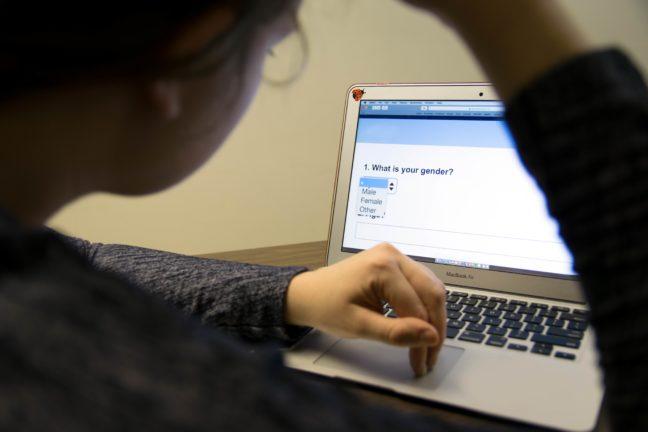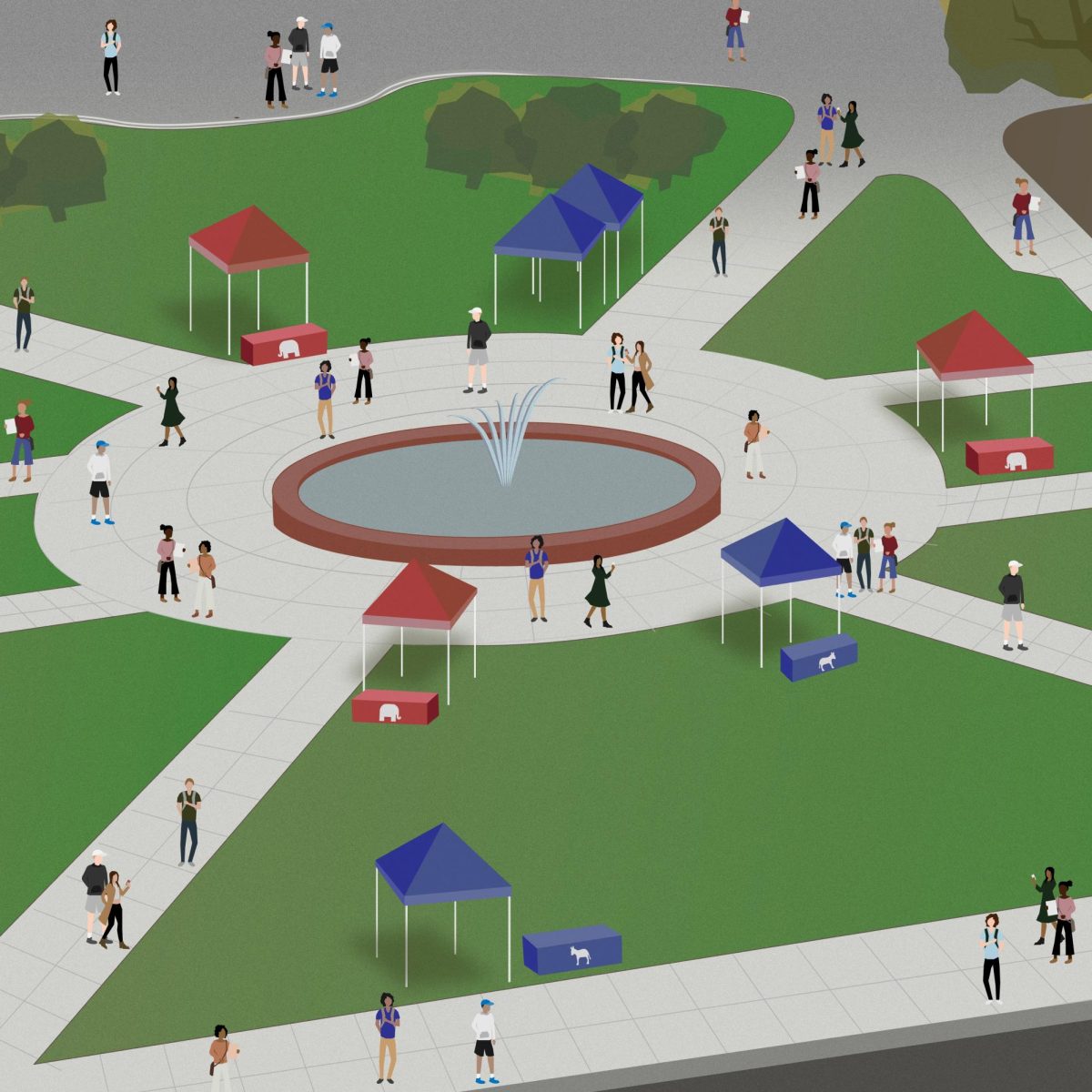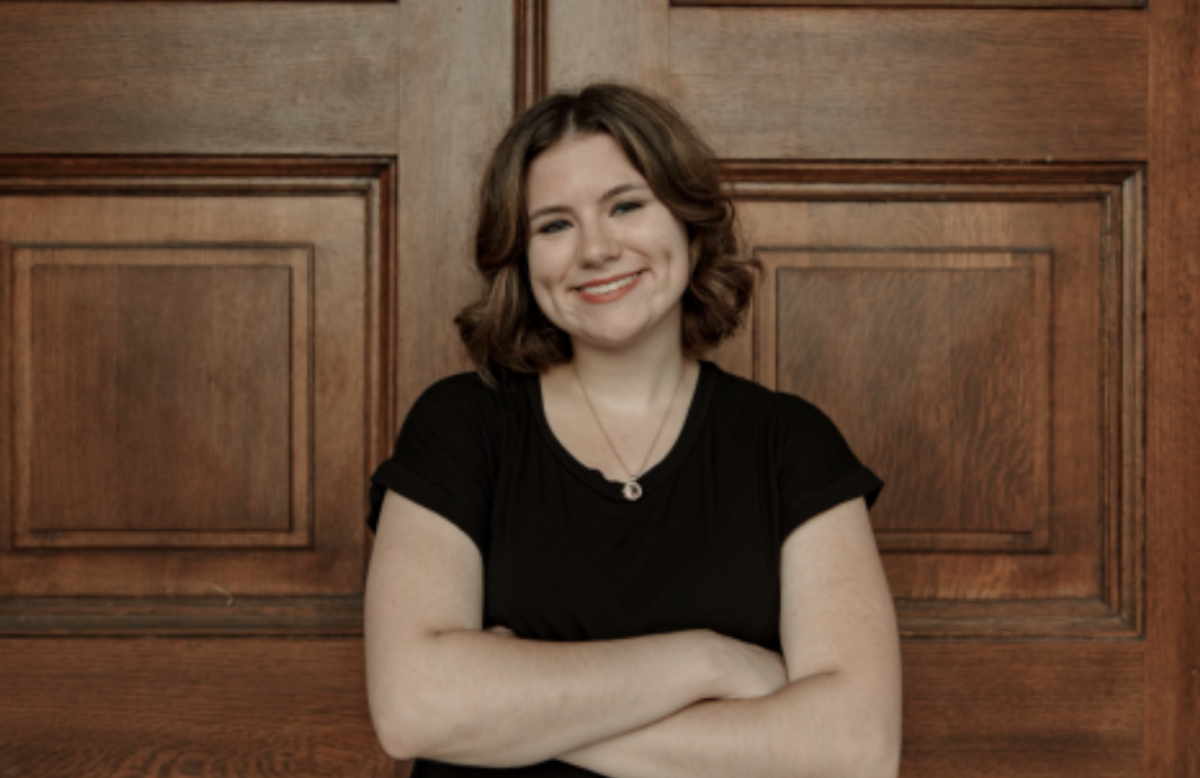For James Van Able, being transgender on a University of Wisconsin System campus means questioning day-to-day actions like using the restroom or walking from class to class.
“That forever fear of ‘what do I pass as right now?’” Van Able said. “Do I pass as anything? Who sees me as what? Who’s going to be accepting of this?”
Van Able, a Madison resident, recent University of Wisconsin-Green Bay graduate and transgender male, said as a student the experience was “pretty ok,” as long as he could find a safe place to go.
While most professors did the best they could, Van Able said overall, people do not have the necessary experience or education when understanding the transgender populations.
According to the Williams Institute at the University of California, Los Angeles, about 1.4 million adults 18 and older in the U.S. identify as transgender. For young adults, 0.7 percent of 18 to 24-year-olds identify as transgender.
Katherine Briggs, interim associate director of the LGBT Campus Center, said while UW tries to provide inclusive services and opportunities for all students, some gaps remain.
Understanding personal preferences
Briggs said the university has established a preferred name policy, which allows students to indicate the name they prefer to use on campus regardless of whether or not they’ve changed their name legally.
According to the Office of the Registrar, UW established the policy in fall 2013 to let faculty, staff and students use their preferred names wherever legal names are not absolutely necessary. But legal names are still used on financial aid documents, payroll, official transcripts, diplomas and federal immigration documents.
Steve Starkey, the executive director of OutReach, the LGBT community center for South Central Wisconsin, said personal pronouns are crucial for transgender individuals to feel understood.
“[Pronoun use is] very important in terms of them feeling welcome and feeling that they are not being misgendered and not being disrespected,” Starkey said.
Madison receives nearly perfect score on LGBT-inclusivity assessment
Briggs said transgender students have access to all the same services as cisgender students, so it’s important for all resources to be inclusive. A cisgender individual is someone whose personal identity or gender correlates to their birth sex. Transgender students face the same issues as their peers, on top of having to navigate UW through a “trans lens.”
“A lot of the struggles are the same, so like roommates and classes and balancing job and work and that kind of thing,” Briggs said. “There is the trans lens on top of that which means also thinking about who are you out to at any given point, what programs or systems allow you to designate your gender on a form or your pronouns when they’re collecting information.”
Outside of these thoughts, Briggs said many transgender students also need to think about who they can confide in, their representation in curricula and if people will respect their personal pronouns.

According to information given to The Badger Herald, University Housing has worked to add more gender-neutral bathrooms. New buildings have one gender-neutral restroom per floor, as do renovated buildings where possible. But many academic and residential buildings on campus don’t have any gender-neutral bathrooms.
At Phillips Residence Hall there is also Open House, a gender learning community that provides more inclusive living arrangements.
Openly gay Muslim leader shares life story, hopes to change perceptions of identity
To help educate students, Starkey said every spring OutReach meets with every section of human sexuality classes at UW. During the panel they have different speakers of various races, ages, socioeconomic statuses, sexual preferences and gender orientations.
“So they get an understanding that our community is diverse and that we’re not one monolithic,” Starkey said. “We don’t all look like Will from ‘Will & Grace.’”
Overall, Starkey said many people accept lesbian and gay individuals, but when it comes to transgender issues, it can be challenging for many to understand since it is an umbrella term that can include male to female, female to male, genderqueer, drag performers and people who crossdress. He said even people at OutReach can struggle to remember the various pronouns.
Van Able changed his name midway through his time at school and most people were able to transition to the new name and pronouns. But many still didn’t understand various terms or how to work with transgender students.
“A lot of times there are weird flub-ups with terminology or kinda being awkward about it,” Van Able said.
Tackling transgender-focused health care
When looking back at his college experience, Van Able said health care and counseling is one of the largest areas that needed improvement. When he started taking testosterone injections, there was not too much the health and counseling professionals could do to help him cope with the strain.
According to research from the Williams Institute at UCLA, 70 percent of 17,105 respondents across 23 countries agreed transgender people should be allowed to have gender-affirming surgery. A majority also agreed people should be able to change the sex listed on identity documents.
Outside of the transitioning process, Van Able said the experience of being transgender greatly shapes individuals’ mental health. He said there is a lot of depression and anxiety among the transgender community.
“A lot of mental health concerns happening all at the same time and then when you’re on campus, feeling always worried about how you look, how you’re passing, all the stress of school working, having to work one or two jobs,” Van Able said. “It’s very, very overwhelming.”
Transcending LGBTQ+ care, UW Health policies ensure nondiscriminatory patient practices
Shannon Juniper Neimeko, an associate counselor at University Health Services, was hired specifically to have a transgender health focus for students on campus. She said the university is currently trying to improve access and transparency to health care for LGBTQ+ students.
Neimeko said at UHS there are many mental health counselors who focus on gender identity concerns and hold psychosocial consults for individuals interested in hormone replacement therapy. UHS also hosts the LGBTQ Support and Empowerment group, which meets a couple times a week.
Overall, Neimeko said minority stress causes many health disparities among transgender populations. Many people have to overcome personal barriers from past negative experiences.
“[I don’t want to] pathologize the experience of transgender, nonconforming students because there is an amazing amount of resilience in the population,” Neimeko said.
Starkey also said there are few transgender-specific health services available. Many insurance companies don’t offer transgender health care coverage and hormone therapy is not always available.
Starkey said OutReach has many clients looking for competent doctors. Recently, he said there was a female to male transgender person who went to Meriter Hospital, and the doctor refused to use the male name and sent the individual home. Two weeks later, they had to undergo gallbladder surgery.
“If you look at what’s lacking for LGBT people, and especially transgender people, that a big problem is access to trans-inclusive health care that’s affordable, and access to doctors that are competent and supportive,” Starkey said.
Providing inclusive access and safe spaces
Starkey said a lot of transgender individuals are ostracized, bullied or teased because of the way they look.
“Coming [to Madison] there’s definitely more spirit of acceptance, you see more diversity, it’s a lot more visible, trans, nonbinary communities just around,” Van Able said.

Overall, Starkey said there are a lot more opportunities in Madison than in smaller, rural communities.
Outside of the campus center, Briggs said other student life offices try to make safe spaces where students can feel seen and heard. But if students don’t know how to access services, they might as well not exist.
“This campus is really interesting, because in some ways it is really progressive and accepting, in other ways it’s not, which is going to be the case anywhere,” Briggs said.
One challenge on campus is bathroom use. For Van Able, it was always terrifying to use the bathroom. Briggs said even with all-gender inclusive bathrooms, many transgender or nonbinary people want to use regular bathrooms.
Currently, Briggs said there are no policies in place on restroom use or provisions. Campus also does not have guidelines or building codes for new building projects or renovations.
Briggs said they have been working with Rec Sports to include gender-neutral spaces in the new Southeast Recreational Facility.
Briggs said the university also plans to make a committee with student participation that will work to make guidelines.
One of the LGBT Campus Center’s biggest concerns though, Briggs said, is to connect all individuals to a community.
“Your experience is just going to be so much better if you have a group of friends or community that feels like a family,” Briggs said.
In the classroom, Briggs highlights the importance of faculty and instructional staff. Briggs said advocates for the LGBTQ+ community can have a make-or-break impact. The LGBT Campus Centers offers services to train and consult individuals on campus, as does OutReach.
“Being neutral supports the status quo and the status quo is always negative for marginalized people,” Briggs said. “The more they can show up for their students, the bigger difference it can make.”














